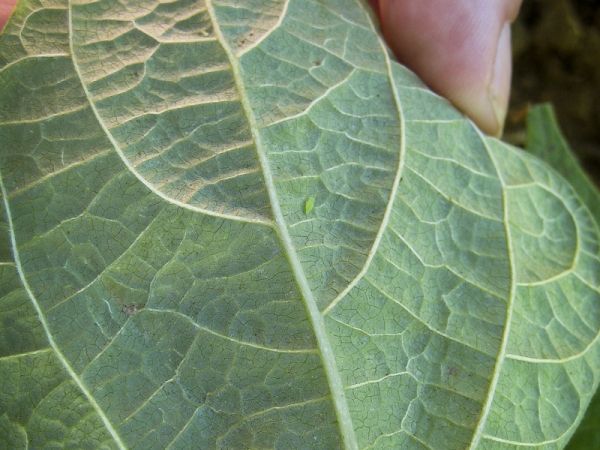Leafhoppers are tiny insects. They are only about 3 millimeters long, smaller than a grain of rice. But they can cause big damage to crops, including beans.
In temperate areas, leafhoppers can cause bean crop losses of up to 20 percent. They are even more damaging in tropical areas. There, leafhopper infestations can lead to crop losses of more than 75 percent.
To combat the leafhopper threat, researchers are continuously trying to develop resistant varieties of crops.
In a new study, Tim Porch and his team describe a new pinto bean, called TARS-LH1. Porch is a researcher at the USDA-ARS Tropical Agriculture Research Station in Mayagüez, Puerto Rico.
This new pinto bean has increased resistance to leafhoppers. It also has other desirable traits, such as high yields and drought tolerance.
Read more at American Society Of Agronomy
Image: Temperate leafhopper species Empoasca fabae on the underside of a common bean leaf. Credit: Beth Brisco


